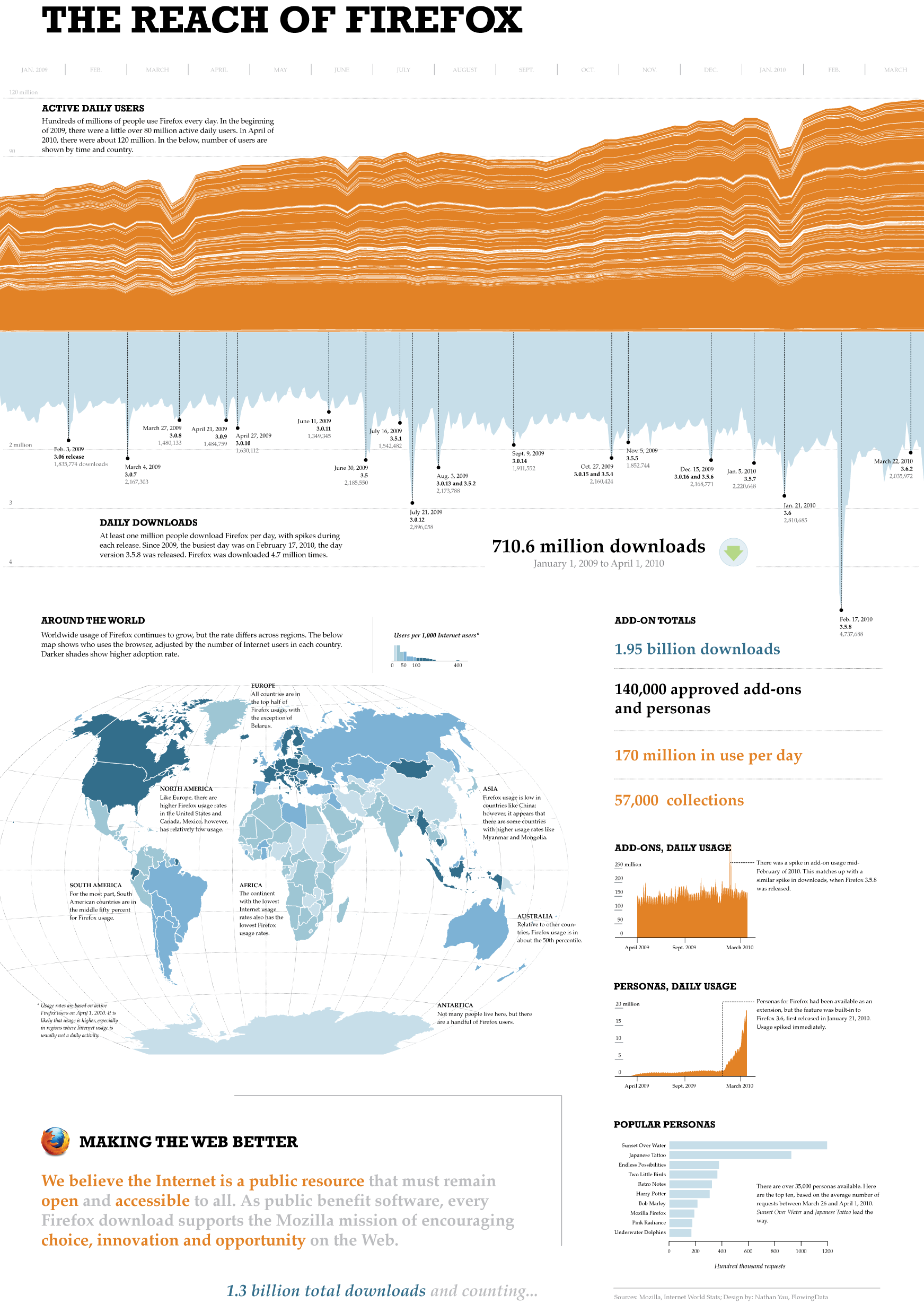I haven't really been disappointed, and maybe because I live in my little bubble of Firefox add-ons that help one with (such great things like block annoying advertisements, transfer my bookmarks between computers, give me quick-links to Google applications, and inform me of the safety of particular sites) as well as being able to manage the appearance of the browser (for example, by changing the fonts, colors and icons in the dropdown menus; putting on a colorful background; and changing the shape of the buttons), I assumed that others would cotton on to the better product. However, I have always been surprised at how people stick with the default of "blah" Explorer (now the 8th version of not-working-very-good).
 Just today, Flowing Data presented the infographic of "The Reach of Firefox", and it is interesting to see how people react to new changes in this browser (i.e., how quickly the download a new version, how quickly they take advantage of new features, etc.). Still, as one commenter points out, the number of users is still quite low, compared to "other" browsers (most likely IE).
Just today, Flowing Data presented the infographic of "The Reach of Firefox", and it is interesting to see how people react to new changes in this browser (i.e., how quickly the download a new version, how quickly they take advantage of new features, etc.). Still, as one commenter points out, the number of users is still quite low, compared to "other" browsers (most likely IE).Looking at the map, it's pretty clear that Firefox is most popular in Europe (not Russia, though), Canada, the US, and Mongolia. What is also interesting to note is that it is also popular in the smaller (area) Asian countries of Myanmar (easier to thwart the military junta? or is it being used by them?), Bangladesh, and Indonesia -- maybe due to licensing fees for the Windows OS? It's also relatively popular in Ecuador and French Guyana, and maybe for the same reasons.
Looking closely at the (relatively) tiny countries that constitute Western (Southern, Central, and Northern) Europe, it is interesting to note that Belarus and Norway are outliers in that their adoption rates are much lower than their that of their neighbors. At Flowing Data, I floated the possibility that the lower Norwegian Firefox adoption might be due to the presence of the Opera system, which is developed by the Norwegian telecom industry, and may therefore act as a serious competitor to all non-IE browsers. (True, though, the UK and Spain seem to be in the same category of Firefox adoption as Norway, so maybe the presence of Opera isn't such a major impact.) I have no idea, though, as to why Belarus is so much less adoptive of Firefox than its neighbors...
No comments:
Post a Comment